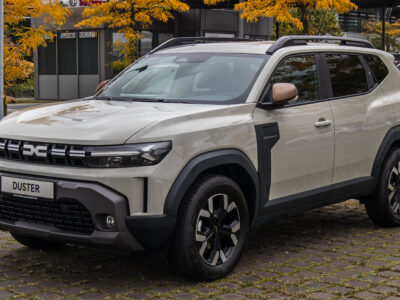
Dacia Sandero Stepway TCe 90 Weight Guide (2020–2026): Complete Specifications & Comparison
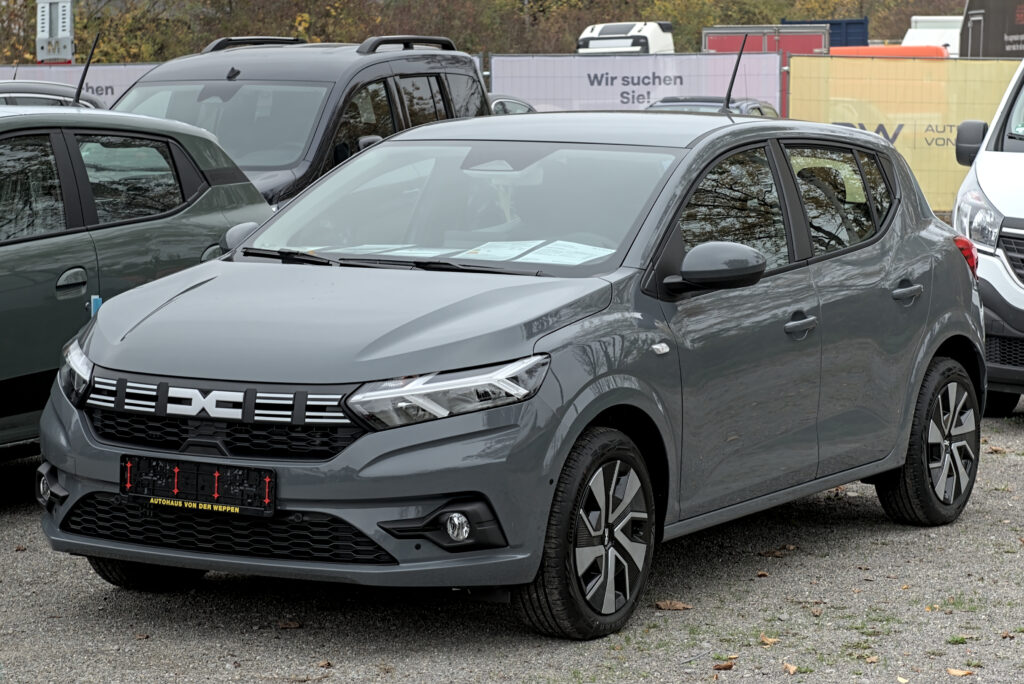
When it comes to compact crossovers, the Dacia Sandero Stepway TCe 90 (2020–2026) strikes a fine balance between affordability, practicality, and performance. But if you're truly evaluating its potential — whether for towing, payload, or efficiency — understanding its weight specifications is key. Here, we’ll break down every relevant figure in detail: kerb weight, gross vehicle weight, towing capacity, and more.
- Overview: Dacia Sandero Stepway TCe 90 Manual
- Kerb Weight of the Dacia Sandero Stepway TCe 90
- Gross Vehicle Weight (GVW)
- Payload Capacity
- Roof Load Capacity
- Towing Capacity (Braked and Unbraked)
- Comparing Weight with Similar Cars
- Impact of Weight on Fuel Efficiency
- Weight Influence on Towing and Payload Performance
- Chassis Design and Weight Optimization
- Comparing Petrol vs LPG Stepway Versions
- Weight and Ride Comfort
- Weight vs Performance Metrics
- Practical Implications of Vehicle Weight
- Maintenance and Weight-Related Considerations
- Summary: Why Dacia Got the Balance Right
- Frequently Asked Questions (FAQs)
Overview: Dacia Sandero Stepway TCe 90 Manual
The Dacia Sandero Stepway TCe 90 is a small crossover powered by a 1.0-litre three-cylinder turbocharged petrol engine producing 91 hp (67 kW). Equipped with a 5-speed manual transmission and front-wheel drive (FWD), this model belongs to the third generation Sandero lineup, produced from 2020 onwards.
| Specification | Detail |
|---|---|
| Model Years | 2020–2026 |
| Engine Type | 1.0 TCe Turbo Petrol |
| Power Output | 91 hp (67 kW) |
| Transmission | 5-speed manual |
| Drive Type | Front-wheel drive |
| Body Type | 5-door hatchback/crossover |
| Fuel Type | Petrol |
Kerb Weight of the Dacia Sandero Stepway TCe 90
The kerb weight represents the vehicle’s total weight with all fluids, a full tank of fuel, and without passengers or cargo.
- Kerb weight: 1,155 kg (approx.)
This makes it relatively light for a crossover, contributing to better fuel economy and nimble handling, especially in urban environments.
Gross Vehicle Weight (GVW)
The Gross Vehicle Weight (GVW) or Maximum Authorised Mass (MAM) indicates the maximum total weight of the car including passengers, cargo, and fluids.
- Gross Vehicle Weight (GVW): 1,640 kg
This means the Sandero Stepway can carry a payload capacity of approximately 485 kg, which includes passengers and luggage combined.
Payload Capacity
Payload determines how much additional weight the vehicle can safely carry beyond its kerb weight.
| Parameter | Value |
|---|---|
| Kerb Weight | 1,155 kg |
| Gross Vehicle Weight | 1,640 kg |
| Payload Capacity | ≈ 485 kg |
That payload range is competitive in the small crossover class, enough for four adults and moderate luggage or light recreational gear.
Roof Load Capacity
The Stepway’s roof load specification defines how much weight can be safely supported by the roof rails when using roof boxes or bike racks.
- Maximum Roof Load: 75 kg
This allows easy transport of items like bicycles, skis, or roof boxes without exceeding safe structural limits.
You may be interested in reading Dacia Sandero vs Stepway: The Ultimate Comparison Guide
Dacia Sandero vs Stepway: The Ultimate Comparison GuideTowing Capacity (Braked and Unbraked)
If you plan on towing a small trailer, the Stepway’s capabilities are respectable for a 1.0-litre engine.
| Type | Towing Capacity |
|---|---|
| Braked Trailer | 1,100 kg |
| Unbraked Trailer | 580 kg |
| Nose Weight (Tow Ball Limit) | 50 kg |
This makes the Stepway suitable for small camping trailers, motorbike carriers, or light utility trailers.
Comparing Weight with Similar Cars
Here’s how the Sandero Stepway TCe 90 stacks up against other vehicles in its category:
| Model | Kerb Weight (kg) | Difference vs Stepway |
|---|---|---|
| Renault Clio | 1,155 kg | Same |
| Nissan Micra | 1,377 kg | +222 kg |
| Opel Corsa | 1,110 kg | -45 kg |
| Skoda Fabia | 1,467 kg | +312 kg |
| Renault 5 E-Tech Electric | 1,372 kg | +217 kg |
| Peugeot 208 | 1,033 kg | -122 kg |
| Honda Jazz | 1,228 kg | +73 kg |
The Sandero Stepway sits comfortably in the mid-range for weight — heavier than ultra-light hatchbacks like the 208, but lighter than electrified or hybrid rivals.
Impact of Weight on Fuel Efficiency
Despite its raised stance, the Stepway TCe 90 achieves impressive efficiency:
- Combined Fuel Economy (WLTP): 5.4–5.7 L/100 km
- CO₂ Emissions: 120–130 g/km
Its moderate weight contributes directly to these figures, ensuring the Stepway remains one of the most economical compact crossovers in its class.
Weight Influence on Towing and Payload Performance
The Stepway’s payload-to-weight ratio is well-optimized for its segment. With a GVW-to-kerb ratio of 1.42, it maintains a strong efficiency vs capacity balance. The structure’s stiffness, combined with reinforced rear suspension, allows confident towing at near-maximum capacity without excessive body roll.
Chassis Design and Weight Optimization
The CMF-B platform (shared with the Renault Clio V) underpins the Stepway. This modern modular base uses high-tensile steel in key zones, balancing rigidity and lightness.
Key design optimizations include:
- Thinner, high-strength door panels
- Lightweight front subframe
- Compact three-cylinder powertrain
- Plastic composite wheel arches and underbody covers
All these help reduce overall mass while maintaining crash safety and structural integrity.
Comparing Petrol vs LPG Stepway Versions
Dacia also offers a bi-fuel (LPG + Petrol) version of the TCe 90. The LPG variant adds around 45–50 kg due to the extra fuel tank and plumbing system.
You may be interested in reading Dacia Sandero vs Stepway: The Ultimate Comparison Guide
Dacia Sandero vs Stepway: The Ultimate Comparison Guide Kia Sportage Towing Capacity by Year (1993–2025): Complete Guide
Kia Sportage Towing Capacity by Year (1993–2025): Complete Guide| Variant | Kerb Weight (kg) |
|---|---|
| TCe 90 Petrol (Manual) | 1,155 kg |
| TCe 100 Bi-Fuel LPG | 1,205 kg |
That small increase slightly reduces the payload and towing figures, but offers improved running costs and longer range.
Weight and Ride Comfort
The suspension setup — MacPherson strut front and torsion beam rear — was tuned to handle weight efficiently across varying loads. The Stepway absorbs bumps smoothly even when carrying passengers or luggage, thanks to increased ride height (174 mm ground clearance) and progressive-rate springs.
Weight vs Performance Metrics
| Metric | Value |
|---|---|
| Power-to-Weight Ratio | ~78.8 hp/tonne |
| 0–100 km/h Acceleration | 12.2 seconds |
| Top Speed | 178 km/h |
The Stepway’s moderate weight helps maintain lively acceleration while still ensuring solid stability and braking performance.
Practical Implications of Vehicle Weight
- Light weight = easier urban driving
Narrow streets and parking are less stressful. - Lower mass = better economy
Every extra 100 kg can add ~0.3 L/100 km to fuel use. - Controlled weight = reduced brake wear
Braking distances stay short, even when fully loaded. - Balanced weight = confident cornering
Especially noticeable during mountain drives or high-speed lane changes.
- Tyre Pressure Monitoring: Keep pressures between 2.2–2.4 bar (front/rear) when loaded.
- Suspension Check: Extra cargo weight stresses rear dampers; inspect yearly.
- Brake Pads: Frequent towing or full loads shorten pad life by 15–20%.
- Roof Load Distribution: Always centralize heavy roof loads to prevent sway.
Summary: Why Dacia Got the Balance Right
The Dacia Sandero Stepway TCe 90 demonstrates how thoughtful weight engineering leads to everyday usability.
It’s:
- Light enough for efficiency
- Strong enough for towing and carrying
- Safe and balanced for family driving
In short, it delivers the practical versatility of an SUV without the penalty of excessive weight.
Frequently Asked Questions (FAQs)
1. What is the kerb weight of the Dacia Sandero Stepway TCe 90?
It weighs approximately 1,155 kg, depending on trim and optional equipment.
2. What is the maximum payload capacity?
Up to 485 kg, including passengers and cargo.
3. How much can the Stepway TCe 90 tow?
It can tow 1,100 kg (braked) and 580 kg (unbraked).
4. What is the roof load limit?
The maximum allowable roof load is 75 kg.
5. How does its weight compare to similar cars?
It’s lighter than models like the Skoda Fabia (1,467 kg) and Nissan Micra (1,377 kg), but slightly heavier than the Peugeot 208 (1,033 kg) — striking an ideal balance between agility and stability.
 Dacia Sandero vs Stepway: The Ultimate Comparison Guide
Dacia Sandero vs Stepway: The Ultimate Comparison Guide Kia Sportage Towing Capacity by Year (1993–2025): Complete Guide
Kia Sportage Towing Capacity by Year (1993–2025): Complete Guide Kia Sportage Boot Space: Everything You Need to Know
Kia Sportage Boot Space: Everything You Need to KnowIf you want to know other articles similar to Dacia Sandero Stepway TCe 90 Weight Guide (2020–2026): Complete Specifications & Comparison you can visit the category Blog.
Leave a Reply

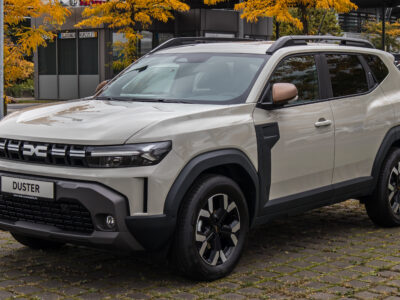
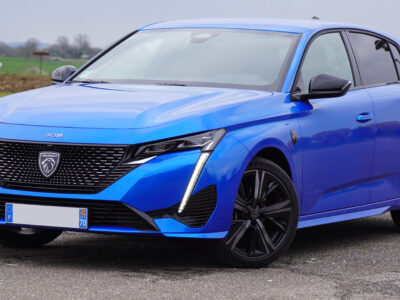
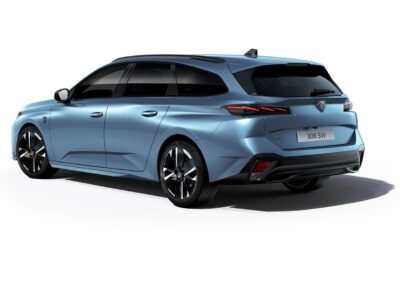
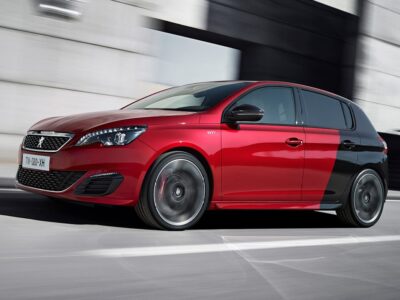
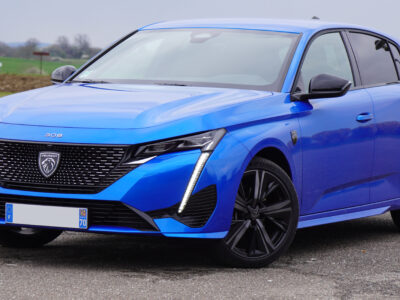
More content of your interest